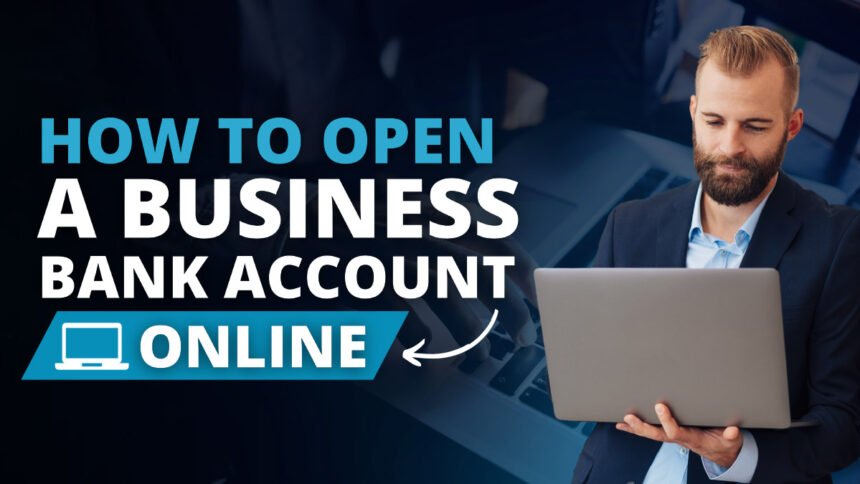In today’s virtual age, managing your business finances has never been more streamlined—thanks to the emergence of the online business bank account. Whether you’re a freelancer, a startup founder, or a seasoned small business owner, transitioning to an online business bank account can significantly enhance your financial operations. This guide explores the myriad benefits, the process of setting up such an account, and expert insights that will help you navigate this vital aspect of modern entrepreneurship.
Understanding the Online Business Bank Account
An online business bank account is a digital banking solution tailored specifically for business needs. Unlike personal accounts, these accounts offer features designed to handle the complexities of business transactions, such as payroll processing, vendor payments, and tax management. The primary advantage lies in their accessibility and integration with various financial tools, allowing business owners to manage their finances effectively from anywhere.
The Advantages of Going Digital
One of the most compelling reasons to opt for an online business bank account is the unparalleled convenience it offers. With 24/7 access to your account, you can monitor transactions, transfer funds, and manage cash flow without being tied to a physical bank location. This flexibility is especially beneficial for businesses operating across multiple time zones or those with remote teams.
Streamlined Financial Management
Many online business bank accounts integrate seamlessly with accounting software like QuickBooks or Xero. This integration automates the synchronization of transactions, simplifying bookkeeping tasks and reducing the likelihood of errors. Additionally, features such as real-time transaction alerts and spending categorization provide valuable insights into your financial health.
Cost-Effectiveness
Traditional business bank accounts often come with hefty fees, including monthly maintenance charges, transaction fees, and minimum balance requirements. In contrast, many online business bank accounts offer fee-free or low-cost options, making them an attractive choice for startups and small businesses aiming to minimize overhead costs.
Improved Security Measures
Online banking platforms employ advanced security protocols, such as two-factor authentication and encryption, to safeguard your financial data. These measures often surpass the security features of traditional banking methods, providing peace of mind when managing sensitive business information.
Setting Up Your Online Business Bank Account
Step 1: Choose the Right Bank
Selecting a bank that aligns with your business needs is crucial. Consider factors such as transaction volume, integration capabilities with accounting software, customer support availability, and fee structures. Institutions like Novo and American Express Business Blueprint are known for their user-friendly platforms tailored for small businesses.
Step 2: Gather Required Documentation
Before initiating the application process, ensure you have the necessary documentation, which typically includes:
- Employer Identification Number (EIN)
- Legal business name and structure (e.g., LLC, Corporation)
- Personal identification (e.g., Social Security Number)
- Business license or DBA (Doing Business As) certificate
- Proof of address
Having these documents ready can expedite the application process.
Step 3: Complete the Application
Most online business bank accounts allow you to complete the application process digitally. This usually involves filling out an online form and submitting the required documentation. Some banks may require an initial deposit to activate the account.
Step 4: Set Up Account Features
Once your account is active, customize it to suit your business operations. Set up features such as:
- Online bill pay
- Payroll processing tools
- Integration with accounting software
- Multi-user access with varying permission levels
Tailoring these features to your business needs can enhance operational efficiency.
Expert Insight: The Importance of Financial Organization
Financial expert Jane Smith emphasizes the significance of maintaining organized financial records: “Keeping your business finances separate from personal accounts not only simplifies tax preparation but also provides a clear picture of your business’s financial health.” This underscores the importance of selecting a business bank account that offers robust organizational tools.
Overcoming Common Challenges
While online business bank accounts offer numerous benefits, some challenges may arise:
Technical Issues
Downtime or technical glitches can temporarily hinder access to your account. It’s advisable to choose a bank with reliable customer support to address such issues promptly.
Integration Complexities
Integrating your bank account with accounting software may require technical know-how. Ensure that the bank provides adequate support or resources to facilitate this process.
Security Concerns
While online banking platforms are generally secure, it’s essential to implement best practices, such as using strong passwords and enabling two-factor authentication, to protect your account.
Conclusion: Embracing the Future of Business Banking
In conclusion, adopting an online business bank account can significantly enhance your business’s financial management by offering convenience, cost savings, and robust security features. By carefully selecting a bank that aligns with your business needs and setting up the account to leverage its full potential, you can streamline your financial operations and focus more on growing your business. As the business landscape continues to evolve, embracing digital banking solutions is a step towards future-proofing your enterprise.
you may also read
Lithium Refining Business: Powering the Future of Clean Energy






